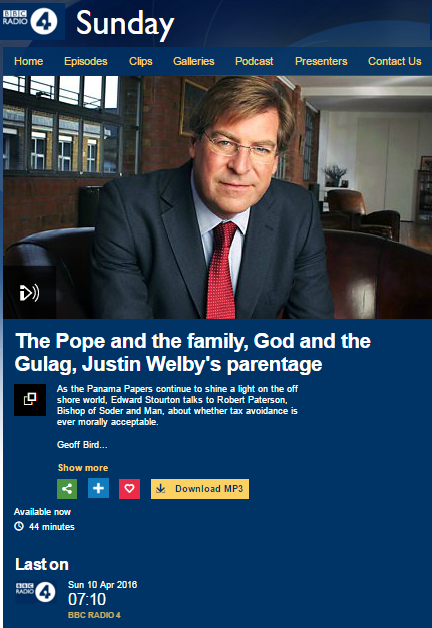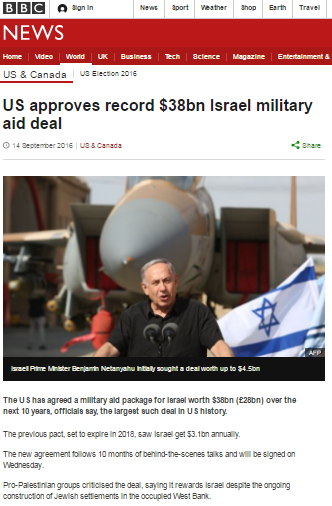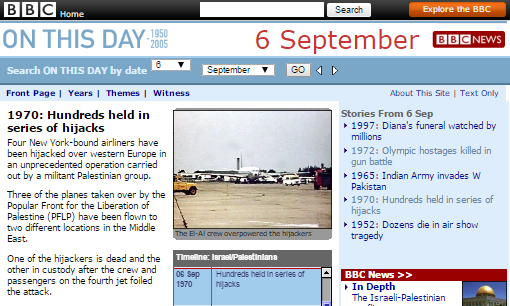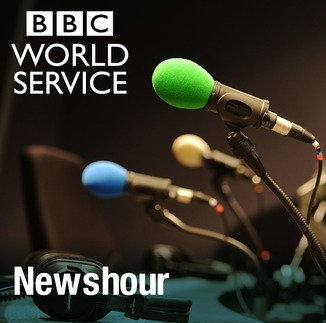The April 10th edition of the BBC Radio 4 programme ‘Sunday’ included an item (from 25:21 here) described in the synopsis as follows:
“In the on-going anti-Semitism row in the Labour party, one issue being raised is about how the term Zionism is used and whether there is confusion about the term. Jonathan Freedland writes for the Guardian and the Jewish Chronicle – he gives his analysis.”
Freedland begins as follows:
“It’s been used probably in the way that we understand it now since the middle or late 19th century where it referred to the movement of Jewish nationalism – the Jewish yearning for self-determination – that felt itself to be alongside other almost romantic nationalist movements of the same period.”
He then continues with an explanation of the term itself which refrains from informing listeners that – far from being “abstract” – the word Zion is a synonym for Jerusalem which appears over a hundred times in the Hebrew bible.
“The word itself was…it was the obvious one because the biblical liturgical term the Jews will have used in synagogues around the world, even this weekend, was Zion – meaning the abstract Jewish homeland.”
Host Edward Stourton then comes in:
“At the time all sorts of ideas were kicked around – as I recall – of a Jewish homeland in bits of Africa, bits of Latin America. But Zionism came, did it not, to symbolise or to mean quite specifically a Jewish homeland in what we now call Israel.”
Had listeners been accurately informed of the real meaning of the word Zion and of the significance of the topic of the ingathering of the exiles to the place that word describes in Jewish prayer and tradition, they would obviously have been better equipped to understand that point.
Freedland responds:
“That’s right. So I think probably historians would want to call early movements Jewish nationalist movements. If you were a Zionist rather than just any old Jewish nationalist it meant you saw the Jewish homeland as being in Palestine.”
Significantly, neither Freedland nor Stourton make any effort to inform listeners why Jews see their homeland as being in the place Freedland elects to call “Palestine” no fewer than three times during this item but which most Jews would call Eretz Israel – the Land of Israel. Audiences hear absolutely nothing about the Jewish nation’s history in that location, the connection of Jewish traditions and festivals to its land and seasons or the significance of specific sites and landmarks in Jewish religious practices such as the direction of prayer or the mention of Jerusalem at the Pessah Seder and in the Jewish marriage ceremony.
Thus, the portrayal presented by Freedland and Stourton steers listeners towards the inaccurate impression that Zionists just happened to haphazardly prefer that location (which, as noted above, is repeatedly referred to as “Palestine” – crucially without any clarification of what that meant in the 19th century) to the additional options available.
Freedland then goes on to introduce a borrowed device that he has used on several occasions in past articles.
“Now I think probably if you’re using it you’re referring to it to mean one is no more or no less than somebody who supports the existence of a Jewish home in Palestine. Where that home is, what its exact borders are, are arguments within Zionism if you like and the best description I’ve heard is by the Israeli novelist Amos Oz who says that Zionism is a family name. You need a modifier – a first name – in front of it to know what kind of Zionist someone is. Because you could have a moderate, liberal Zionist; you can have a socialist Zionist, religious Zionist. Those people will all have arguments about what shape and size and content this Jewish state in Palestine should be but that there should be a home at all – that makes you a Zionist.”
Stourton later goes on to say:
“But just to confuse things further, you referred earlier to religious Zionists which I take to mean for example settlers who believe that land was given to them by God – and that despite the fact that originally most Zionists were secular.”
That stereotype of course conceals the fact that over a third of the people the BBC terms “settlers” are not religious.
Freedland continues, managing to ignore the immigrants from Yemen during the First Aliyah, religious Zionists such as Rabbi Shmuel Mohilever and Rabbi Jacob Reines and the fact that by the time the Second World War broke out there had been five waves of immigration to Israel spread over 57 years.
“The very first modern political Zionists were if anything anti-religious because the religion had taught until the mid-nineteenth century that the return to Zion was something that was the work of God alone and if anything, it was an act of usurpation for the Jews to take themselves. The experience of the Second World War – and of course the Holocaust – if you like converts the Jewish world to Zionism because Zionism is seen to have – very glumly – to have won the argument because it’s been saying it’s impossible for Jews to live permanently as a minority around the world; we need a place of our own. And therefore the Jewish world shifts. But Jewish religion doesn’t shift entirely. To this day ultra-orthodox Jewish religious communities often stand against Israel and Zionism but there was this shift and it did even happen among religious Jews who suddenly got their heads around the idea that they could – rather than waiting for God’s will – they could give God’s will a nudge if you like.”
Remarkably, a significant portion of this item is devoted to Freedland’s own preferences concerning the term he has supposedly been brought in to explain to BBC audiences.
Freedland:
“And it’s partly why I tend to almost never use the word now myself because it’s so misunderstood that it’s actually become almost functionally useless as a word. People think it means you support what the Israeli government did yesterday. That’s a complete misunderstanding of the term.”
Stourton:
“And if you want to avoid getting embroiled in the sort of conversation we’ve just had, don’t use the word I suppose.”
Freedland:
“Unless they’re speaking really about this historical, philosophical argument I think it’s not a useful word and it can sometimes have a rather ugly connotation and that’s because Zionism has become in part a kind of bridging code word that enables people to get from attacking or criticizing Israel to hinting at a wider global Jewish force that sometimes is a bit shadowy and sinister and that is the traditional anti-Semitic idea of a global Jewish conspiracy. Ah…and therefore it’s just…it’s a word that carries so much baggage it’s almost collapsing under the strain.”
In his introduction to this item Edward Stourton told listeners that the President of the Board of Deputies of British Jews had:
“…complained that the word Zionist was being treated as if it were some kind of term of abuse by certain circles on the far-Left.”
Stourton then went on to ask “So what does it mean?” and we might therefore reasonably conclude that the aim of the item was to provide listeners with an answer to that question, thereby to enhance their understanding of the above statement from the President of the Board of Deputies and to enable them to be better informed with regard to the various stories concerning the British Labour party and antisemitism such as the one recounted by Stourton at the beginning of his introduction.
Effective explanation of any term hinges upon the provision of an accurate definition and in this case an appreciation of the rich background to the term Zionism is obviously crucial to understanding. The absence of accurate representation of the historic context of the millennia-old bond between Jews and Israel in this item prevented its aim from being met.




